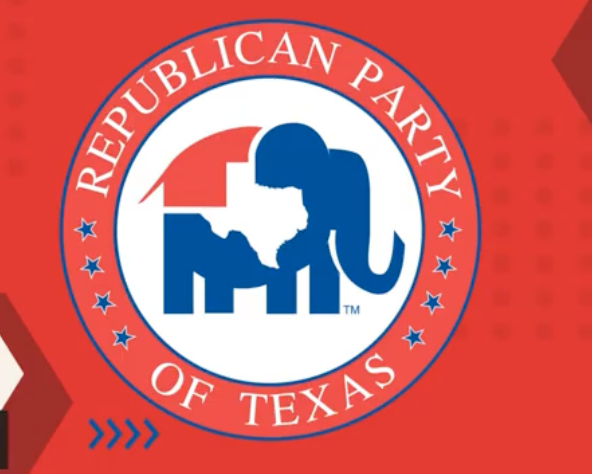- The Republican Party of Texas sued the State of Texas and Secretary of State Jane Nelson to have the state’s open primary law declared unconstitutional
- The Texas GOP asserts that the open primary law abridges the Party’s First Amendment Right of freedom of association by allowing non-Republicans to choose the Party’s nominees
- The Idaho Republican Party successfully challenged that state’s open primary law on similar grounds in a 2008 lawsuit
The Republican Party of Texas filed a lawsuit against the State of Texas and Texas Secretary of State Jane Nelson on Thursday night, seeking to have the current open primary system, as it exists under state law, declared unconstitutional.
Chip Hunt, who is identified as a “longtime Republican” and a Republican precinct chair in Potter County, is also a named Plaintiff in the lawsuit. The case was filed in the Amarillo division of the Northern District of Texas federal court and has been assigned to Judge Matthew Kacsmaryk – a Trump appointee who is likely to be sympathetic to the Texas GOP’s arguments.
In the lawsuit, the Republican Party of Texas argues that the current open primary system, as outlined in the Texas Election Code, “forces the Party to allow voters who may fundamentally oppose the Party’s principles and candidates to choose the Party’s nominees.”
The solution, the Party argues, is for the Court to declare the current law unconstitutional, allowing the Party to work with the legislature to craft a closed primary system or, if necessary, implement a closed primary on its own.
“To ensure the transition to closed primaries is not pushed even further into the future, this Court should declare that forcing the Party to nominate candidates through Texas’s open primary system violates its First Amendment rights,” the lawsuit states.
“Once the Party’s rights are definitively established, the Party can still work with the Legislature to accomplish an orderly transition to closed primaries. The Party strongly prefers that the Legislature remedy this ongoing constitutional violation by passing legislation that respects both the Party’s constitutional rights and legitimate State interests in election administration and election integrity. And this would be consistent with the practice in other States that have remedied similar constitutional violations by passing legislation, including in response to a court declaration.”
The lawsuit appears to acknowledge that logistical hurdles would prevent the Texas GOP from implementing a closed primary in time for the 2026 election, but says it is bringing the suit now to prevent further delay in closing the Primary.
“The Party recognizes, however, that transitioning millions of Texas voters and the Texas election apparatus to closed primaries takes time and effort. Indeed, draft legislation introduced in the 2025 Regular Legislative Session—nearly a year before the 2026 primary—still provided that the 2026 primary election would be a bridge election where unaffiliated parties could still vote in the Republican primary. That is why the Party brings this suit now. The Legislature (and the Secretary) have already failed to close the Republican primary for 2026. And given the steps necessary to transition to a fully closed primary in an orderly fashion, the Party cannot continue to wait and risk further political inaction and delay that could lead to open primaries (or even a bridge election) in 2028 as well.”
Last year, the Republican Party of Texas adopted Party Rule 46 to implement a closed Primary election. Under the text of the rule that was adopted by delegates at the Party’s State Convention, the Party itself would have been responsible for maintaining records of affiliation of voters who were eligible to vote in the Republican Primary, either through having voted in the previous Republican Primary election or by submitting a written certificate of affiliation with the Party.
In June, the State Republican Executive Committee changed Rule 46 in anticipation of this litigation to close the primary. Under the amended Rule 46, only voters who are registered with the Texas Secretary of State as a Republican are eligible to vote in the Republican Primary. Texas law does not currently provide for voter registration by Party, but the Texas GOP hopes that the lawsuit will spur the State to create such a system.
While the Republican Party of Texas expressed concern that the current open primary system “permits non- Republicans to potentially have a dispositive effect on who becomes the Party’s nominee for office,” the two examples cited by the Party in its lawsuit do not establish any prevalence of crossover voting.
In one instance, the Party cites Dade Phelan’s 389-vote victory in the 2024 Republican Primary runoff as an example where crossover voting likely impacted the election’s outcome. However, voters who voted in the 2024 Democratic Primary would have been ineligible to vote for Phelan in the Republican Primary runoff. While some voters had a prior history of voting in a Democratic Primary, Jefferson County has seen significant growth in Republican voting strength in recent years, with many Democrats changing parties to become Republicans.
In another example, the Party claimed that State Representative Gary VanDeaver won his 2024 Republican Primary race against challenger Chris Spencer by 763 votes. This claim, however, is not accurate. While VanDeaver did indeed secure a first-place showing in his 2024 Republican Primary race with 763 votes more than Spencer, neither candidate earned more than 50% and the two faced off again in the May Republican Primary runoff. VanDeaver then defeated Spencer by 1,510 votes in the runoff, earning 53.52% of the vote to Spencer’s 46.48%. As with Phelan’s runoff, voters who voted in the 2024 Democratic Primary were ineligible to vote in the Republican Primary runoff.
The Texas GOP’s lawsuit is not the first time a political party has gone to court to challenge the constitutionality of a state law requiring closed primaries. In 2008, the Idaho Republican Party filed a similar lawsuit that resulted in a federal judge declaring Idaho’s closed primary law unconstitutional. In light of that ruling, Idaho lawmakers changed their state law to allow for a closed primary.







